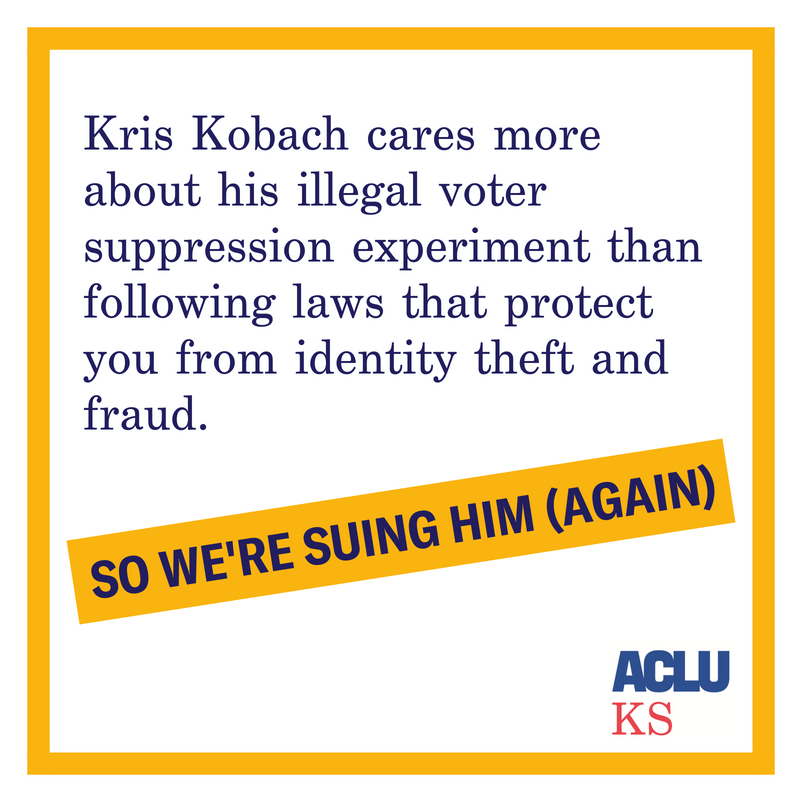Moore v. Schwab (previously Moore v. Kobach)
- Filed: 06/19/2018
- Latest Update: Jun 19, 2018

Related News & Podcasts
Jan 30, 2019

Colorado Withdraws from Crosscheck
Crosscheck was promoted as a data sharing tool for states to maintain their voter registration rolls. However, the program has faced both lawsuits and extensive criticism for leading to the potential disenfranchisement of eligible voters and exposing voters’ privacy.
Stay Informed
Sign up to be the first to hear about how to take action.
By completing this form, I agree to receive occasional emails per the terms of the ACLU’s privacy statement.
By completing this form, I agree to receive occasional emails per the terms of the ACLU’s privacy statement.
